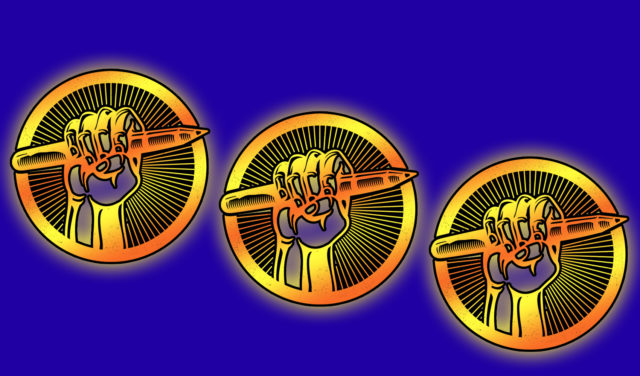
Thanks to the many gifted writers among our readers, we are pleased to welcome you to Boulder Weekly’s 3rd Annual 101-Word Fiction Contest. Once again, this year’s competition grew significantly over last year’s — that’s to say that we had a lot more entries from considerably more writers this time around. And, as has been the case every year since we started this micro-fiction experiment, we were blown away by your imaginations and creativity.
Now for the small print. As always, there was a five-entry limit on submissions a single writer could make and a lot of our submitters entered more than one piece. When it came to the judging, the number of submissions by a writer was not taken into consideration. In fact, all judging was done blind. Those of you who didn’t win may apply a different interpretation to that phrase but in this instance “blind” refers to the fact that we didn’t know who wrote what until after the final scoring was complete. As a result, you will notice that some writers have more than one piece published while others will have to try again next year to get their work into the final 20, which are published below.
There were four judges who assigned each piece a score between 1 and 5. After the judging, the numbers were added together with the overall highest scores being the winners. In case of ties, which there were plenty of, the pieces which had originally received the same score from the judges, were rescored in a mini-competition just between those two or three entries in order to gain a final order.
In the end, five winners were selected along with an additional five entries being chosen for honorable mentions. We have published those 10 stories along with the other 10 of our overall 20 finalists.
So with that, please read and enjoy this year’s winners and finalists in our 101-word fiction contest. And as always, thanks most of all to these creative writers for sharing their amazing, all be it brief, work with all of us.
— Joel Dyer, editor
101-Word Fiction Contest Winners
First Place
All Saints Day
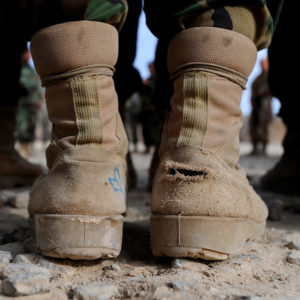
In the yard we gather the fallen into black plastic and tie off the yellow loops with neat bows, then arrange the bags in a respectful line under the porch. Winter threatens the sky with gray over white over gray, and we imagine those returning home on airport runways with the grain of foreign deserts nestled in their still boots. At least we have photographs.
On Saturday we haul them to the landfill by the cemetery and dump the remains into wire cages, then save the plastic for another season.
—Timothy Hillmer
Second Place
WWII PTSD
“Sweet Jesus,” my mother shouted.

We looked out and there he was in the center of the driveway, pouring a fuel can over the top of the model bridge. He lit a match. Dropped it. The flames started slowly, but as if making a conscious decision, they leapt the balsa wood abutments and down the cable stays and onto the ramps and ignited the whole bridge, a year’s worth of work. Pieces began to cave in. In a moment, all that remained was a black stain on the gravel and a broken man above his shadow.
The Ludendorff had finally fallen.
—Ryan Slabaugh
Third Place
Detective
It was raining when she arrived at my office, her eyes lost.

I can pay; I have money.
A heron loomed in the swamp where his body was found, a red flower blooming from the eye of his skull. Marbles covered the floor of his room, spilling from the mouth of a toy clown. The criminal took back roads, leaving nothing behind except his tiny handprint on the mirror in a gas station restroom. The last person to see him alive was the station conductor who glimpsed a small, white-gloved hand waving farewell from the train.
—Timothy Hillmer
Fourth Place
Again
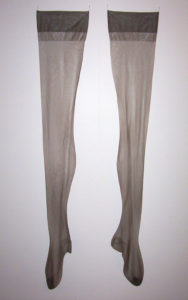
Rushed, she pulled her shirt over her head, careful not to brush it against her makeup. It was her second time changing — the baby had spit up all over her.
She should cancel.
She caught a glimpse of herself in the mirror; there was a run in her stocking.
“Take them off,” said Margret, “no one wears those anymore.”
The hostess showed her to the table. “Michael?” she asked timidly. He bumped the table as he stood to shake her hand.
She noticed a little piece of blood-dotted tissue stuck to the corner of his clean-shaven cheek. Relieved, she smiled.
—Kym Terribile

Fifth Place
Aroma
Instead of ordering groceries using the chip under her skin, Eartha drove to the store. Pushing a cart, reaching high then bending low reminded her she was ninety three. Employees shelving offered no help and when cashiers ignored her wrist for coupon scanning, she yowled “fuck,” stormed out and ordered a t-shirt printed with her naked at age thirty. The next day the cashiers gushed over her sexy shirt. Eartha used to fume when people spoke to her with their eyes on her chest, well, now she wouldn’t mind at all. Driving home she realized that the cashiers were robots.
—Jean Thompson
101-Word Fiction Contest Honorable Mentions
Wanted

Grannie Marl waved at Ionia. She pointed at art books and magazines, salvaged from dumpsters, that were carefully arranged on the sidewalk.
Ionia smiled. “You find interesting books! The one that I bought yesterday had this tucked inside.”
She carefully unfolded a yellowed newspaper clipping. Grannie jerked when she saw the photograph and the heading: “Artist and anti-Vietnam war activist, Annie Carlson, wanted by the FBI.”
“Grannie, that girl could be your granddaughter.”
Grannie smoothed her grey hair with long, graceful fingers. “Well, she ain’t.”
—Kristen Marshall
Hitchhiker
I almost missed him in that full-length camouflage coat, Vietnam era boonie, Ho Chi Minh beard and braided pigtails.

He was nearly invisible against the backdrop of alders and beardtongue penstemon.
His thumb was out.
I pulled over.
Marie shouted, “Mike, please don’t stop. Look at him!”
She locked her door.
“Get in, man. Where are you going?”
“Ward. Thank you.”
“Do you live there?”
“No. My Dad is dying. I’m going to be with him. I’ve been alone in retreat all summer.”
Marie said, “I’m so sorry.”
He said, “So am I. Don’t worry. You’ll be okay.”
—Geoff O’Keeffe
Gutters

To never have to eat again… until. This could be a story about afternoon rain, how it forms a tattered gauze behind which a rainbow smolders come springtime. Or water’s gravity, its weight, and the sun lifting it up again. It could be about my neighbor texting her neighbors, a married couple in their 50s, asking them not to scream at each other with such loud and disturbing vitriol on still summer nights. It could be about desert sand in the street gutters of the Mexican city of San Luis and the cancer clinic where someone’s girlfriend began her dying.
—Tim Gale
Playdough

Lulling in bed, Fatso enjoyed caressing her emergent breasts. At breakfast she whispered to her mother, “I really need a bra.” “No,” her mother hissed, “dear god, not yet.” Fatso’s father looked up from his newspaper, a toast triangle levitating by his opened mouth. Sister Hortense’s seventh-grade classroom was blistering hot. Fatso’s nipples scratched against her starched uniform. Gazing upon a classmate’s bra straps resting daintily beneath a wispy blouse, she imagined her own breasts cradled in delicate china cups stretching the buttons of her hallowed blouse. Suddenly, her father’s cocked eyebrow appeared amid the gun fire of her heart.
—Jean Thompson
Reflection

Reflection is never easy and best done alone, naked, using your eyes as the only mirrors. Start at the toenails, opaque shields, and work your way past calf and thigh and chest and shoulder to face where you peel back the skin like an orange, leaving only the eyes. Move beyond the blue iris as easily as a swimmer’s toe slipping into a pool. The fruit here is rich and sweet. Observe the heart and brain from a variety of angles. Feel the pulse and surge of memory. This is the beginning, the pale tissue of a story unscarred.
—Timothy Hillmer
101-Word Fiction Contest Finalists
“I am Adelmira Rodriguez”

I am Adelmira Rodriguez. I saw you this morning in the Denver International Airport near Gate C27. I followed you, sweeping up small flakes of toilet tissue debris from your stall’s floor. You laced your lips with red and tucked your short black hair behind your ears. I mashed down the wet towels discarded by you and others like you after you rinsed your hands in the sink. You bumped me and I apologized. You said nothing. I am Adelmira Rodriguez, and I silently dedicate this day to you. May goodness and kindness follow you all the days of your life.
—Dar Mikula
Requiem For A Street Taco

I never said this would be easy. True taste-bud love doesn’t just fall off the food truck. My flavor profile is complex. My ingredients were right there chalked upon the signboard, in plain view for all to see — including you. You said you could handle the charred asada of my soul. My bitter cabbage, my incendiary salsa. I offered myself up to you for four dollars, free napkins, no strings attached. Sad little man. You devoured me in three bites, hardly chewing, at a time when I only wanted to be held.
—Christopher Ransom
The Artificial Lantern
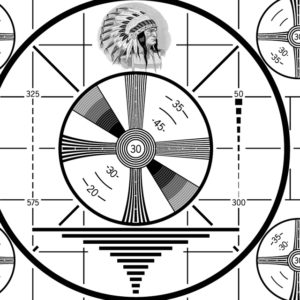
The red lantern on the table fakes its flame. Open the swing panel on the bottom — it reveals a clutch of batteries. This unreal light is missing a tickle-flicker. Still, it serves as a centerpiece for the artist’s dinner. Tonight, he eats pork-and-broccoli stir-fry with his wife. The silver anniversary approaches. The artist’s spouse knows tonight’s the night because he gets hot whenever he blends meat with vegetables. She hates how he chews and has become an expert at faking love. She fakes it again when their lantern glows cold — smiling, knowing he knows nothing about her.
—Kirby Wright
The Last Regret.

I felt myself slipping, warmth leaving me, every second pulling life out of me. I regretted running that light, and if the person in the other car was still alive, they would’ve, too. I grimaced from pain, searching for my phone again. Still nothing. I felt blood pooling in my right lung, punctured by a piece of dashboard. I thought of Mom, probably still asleep, tired of worrying about me and my late nights. I wished I could tell her I loved her, that I was sorry, and that she was right: I was going to get myself killed one day.
—Kellis Charles Lewis
Doctor, Doctor

Happiness might be a job at which not everybody excels. Ruby disdained explanations: oxycodone, adderall, valium, mango rum, diesel kush, fentanyl, admixtures thereof sufficed. It’s nobody’s fault other than DNA’s or a tweaked childhood’s software. Like many, she’d have relished the album title, Nobody Wants to Be Here and Nobody Wants to Leave. Rehab was working but her family doctor, a pliable man, wasn’t, at least not on her behalf. Two fentanyl patches plus a beer and her game clock ran out. But Ruby’s metal work shines on. That riveted heart, lacquered in black and red, wreathed in rusty barbed wire.
—Tim Gale
The Hitchhiker
What do you do?”
“Farm. That’s where I’m headed.”
“You just wandering?”
“I’m prone.”
He paused. “You’re a funny man. Your business don’t have to be my business, I guess.”
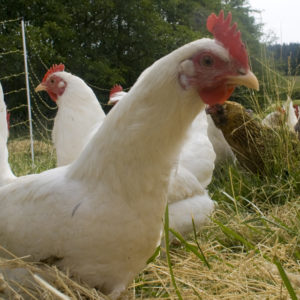
“Sounds fair.”
“When do you start planting?”
“Maybe next week.”
“Soybeans?”
“Might.”
“What’s your trick? I ran into an ol’ boy a while ago who told me he fed his chickens peppercorns to keep them from getting sick, and swore by it.”
“Keep the bugs off,” I said.
“That’s it?”
“Most.”
“You’re not much for telling,” he said.
“Not much, no,” I replied.
—Ryan Slabaugh
Aching Queries
How did she end up with him?” My companion at the bar sneered and drained his beer mug.
“Proximity raised its seductive head,” I responded.
“Yeah, I know,” he said. “That’s often how people meet — in class, at work, whatever.” He motioned to the bartender for a refill.
“Why does it bother you?”

“She could have done better.”
“Oh, you mean she could have been with you.”
“No… well, yes, we’d have been a better fit.”
I ordered another glass of wine.
“Maybe she just needed someone to take care of her.”
“I guess we all do sometimes. Lend me a twenty?”
—Bill Reef
Getting Chased

We ran through the cornfield. The yellow earless stalks brushed hard against us like the arms of strangers in a crowd. The brown leaves flayed our faces like fish tails just gone rigor mortis.
It was three against three but they came after us anyway. They looked mad. Inside the field, I could hear someone laughing. I did not know about the others but I was scared.
The red dirt road was deserted. Alone, I waited for them. Bent over, I listen. Someone got caught. I ran faster than I ever had with only the silence behind me.
—John Dungan
Wake Up

The house stands above a slope to the lakeshore. Old growth trees edge the lot, loons swim and white-tailed deer roam the woods — an idyllic setting. The roof is overgrown in moss, siding covered with mold, paint peeling and screen door torn. A trash pile inside the door brims with empty gin bottles. Kitchen plumbing is useless, plugged with bacon grease. Dirty sponges and rags litter the counter, dust bunnies guard corners. Mother committed suicide in the corner room.
You’re on the deck, passed out in a broken lawn chair. Highball glass lined with spent limes.
Are you breathing? “Wake Up.”
—Robert Carrier














